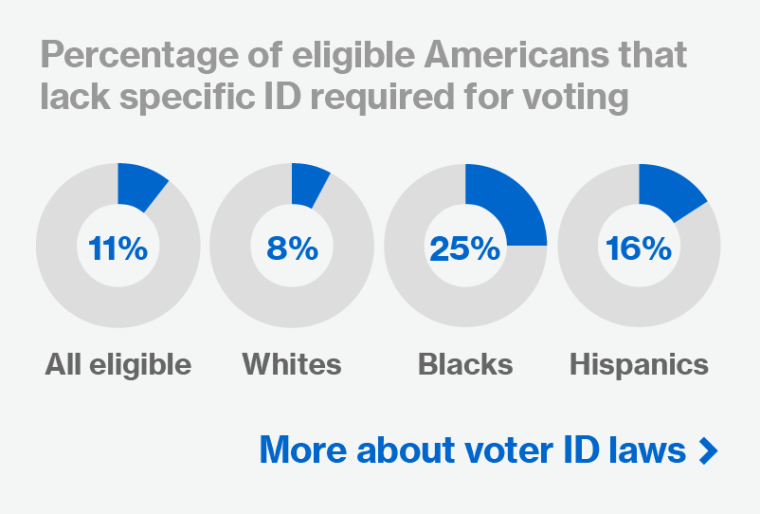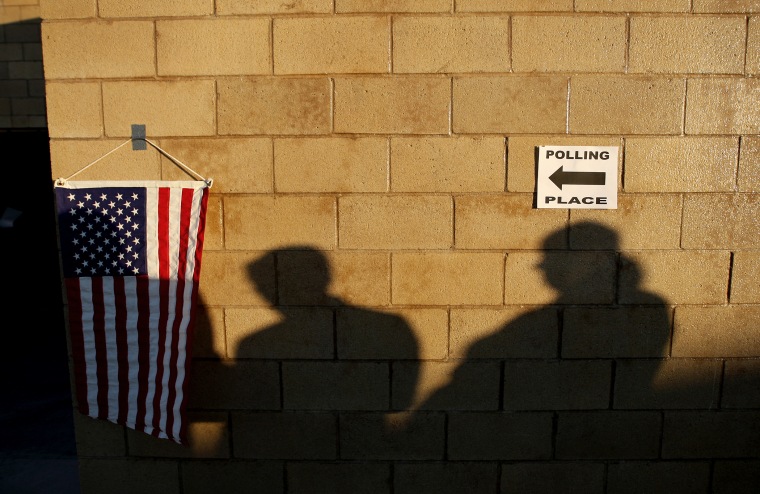California conservatives and Tea Partiers have launched a campaign to pass a voter ID measure via ballot initiative, sidelining the state’s Democratic-controlled legislature.
Right now it looks like a long shot. But passing voter ID in the nation’s largest state, and the one with by far the most minority voters, would represent the voter suppression movement’s biggest win yet.
The California Secretary of State’s office announced last week that proponents of a measure that would require voters to present “government-issued photo-identification” can begin collecting the 504,760 signatures needed to put it on the ballot in November. They have until the end of May to gather the signatures.
The campaign is being led by Elise Richmond, a southern California talk show host and conservative Republican activist. Richmond, who did not immediately respond to requests to discuss the effort, referred to President Obama and the first lady as “the Sun King and the Ghetto Fashion Queen” in a post on her web site last year.
It’s not clear how much backing the campaign has. A Facebook page started in July by Richmond’s group, Guard My Vote, has only 152 likes. But Steve Brandau, a Tea Party leader from Fresno, said Tea Party groups will likely offer strong support for the effort.

At last September’s GOP convention, the Tea Party California Caucus, which is working to move the state party to the right, proposed a resolution calling for a photo ID requirement, Brandau said. The state party ultimately passed a resolution that called for voters to present ID, but removed the photo requirement.
Mark Sonnenklar, who leads a Los Angeles-based Tea Party organization said Richmond had approached his group for help raising money and recruiting volunteers.
"Right now they're looking for financial backing, and then they'll need organziation backing as well," said Sonnenklar, who also is active in the statewide Tea Party movement. "Once they've raised the money and they're ready to start collecting signatures, we will help."
The measure is needed because of the potential for voter illegal voting in the state, Sonnenklar argued. He said the Election Integrity Project, a California-based group that raises concern about voter fraud, is in the midst of compiling a report on the problem.
"It's pretty much undeniable that there is voter fraud going on," Sonnenklar said. "Of course, it's hard to prove actual voter fraud. But I think they're well on their way to showing that it's happening."
A voter ID law would have essentially no chance of passing through California’s legislature, which is controlled by Democratic super-majorities. The state’s governor, Jerry Brown, also is a Democrat. But voter ID tends to poll well, because many people over-estimate the prevalence of fraud and under-estimate the number of people who would be disenfranchised by such laws. That means a ballot initiative might have a chance if backed by a robust campaign to gather signatures and convince voters.
California Republicans have been fighting an uphill battle against demographic trends in the Golden State. Fifty-eight percent of Californians—over 21 million people in all—are non-white. That’s nearly as many as the total population of Texas, which passed a strict voter ID law in 2012.
Racial minorities are significantly more likely than whites to lack ID, numerous studies show.
